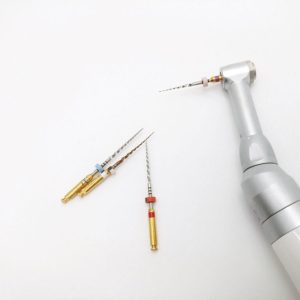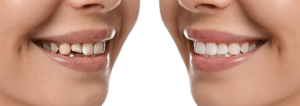What case is suitable for custom zirconia implant abutment
Custom zirconia implant abutments may be suitable for a variety of cases, but they are often recommended for patients who require an (anterior) highly esthetic and durable dental implant restoration. Zirconia abutments are known for their excellent biocompatibility, strength, and natural-looking appearance, making them a popular choice for anterior teeth and other visible areas of the mouth.
Zirconia abutments may also be a good option for patients who have a high risk of developing peri-implantitis, a type of inflammatory disease that can lead to implant failure. Zirconia abutments are non-metallic and do not corrode, making them resistant to bacterial growth and inflammation.
In general, custom zirconia implant abutments may be recommended for patients who have unique dental anatomy or who require a customized solution to achieve optimal dental implant function and aesthetics. A dental professional can evaluate each patient’s specific needs and determine if a custom zirconia implant abutment is the best choice for their dental implant restoration.
How do zirconia abutments applied to patients
To apply a zirconia abutment to a patient, the dentist will first place the dental implant into the jawbone, allowing time for the implant to integrate with the bone tissue. Once the implant has fused with the bone, the dentist will place an abutment on top of the implant, which will serve as the foundation for the dental crown or bridge.
In a dental laboratory, zirconia abutments are produced using computer-aided design and manufacturing (CAD/CAM) technology. First, the dental technician will take an impression of the patient’s mouth to create a digital model of the implant site. Using specialized software, the technician will then design the abutment to fit the implant and the patient’s bite.
The design is then sent to a milling machine, which uses a solid block of zirconia to create the abutment. The milling process is precise and computer-controlled, ensuring a perfect fit for the implant and a high level of accuracy in the final product.
Once the zirconia abutment has been produced, it can be finished and polished in the dental laboratory before being sent to the dentist for placement in the patient’s mouth. Overall, zirconia abutments offer a strong, durable, and aesthetic option for dental implant restorations.
A Guide to Custom Zirconia Implant Abutment Process in Dental Lab
A zirconia implant abutment is a custom-made abutment that is fabricated in a dental laboratory. The abutment is made from high-strength zirconia ceramic material that is resistant to wear and corrosion, making it an ideal material for dental restorations. The zirconia implant abutment is designed to fit the exact specifications of the patient’s mouth and the implant, ensuring a secure and comfortable fit.
The process of creating a custom zirconia implant abutment begins with an impression of the patient’s mouth and implant. The impression is then sent to a dental laboratory, where a skilled technician will use CAD/CAM (computer-aided design and computer-aided manufacturing) technology to create a 3D model of the abutment. The technician will then use the 3D model to fabricate the zirconia implant abutment.
The fabrication process begins with a block of zirconia ceramic material. The block is milled using a computer-controlled machine, which precisely carves the zirconia into the shape of the abutment. The abutment is then polished and finished to ensure a smooth and aesthetically pleasing surface. The technician will also add any necessary features, such as screw channels or retention grooves, to ensure a secure fit. While the process of creating a custom zirconia implant abutment requires advanced technology and skilled technicians, the end result is a custom-fit abutment that can provide a strong foundation for a prosthetic tooth.
Once the zirconia implant abutment is fabricated, it is sent back to the dentist’s office for placement. The dentist will use a special torque wrench to attach the abutment to the implant, ensuring a tight fit. The prosthetic tooth can then be attached to the abutment, completing the dental restoration.
Esthetic zirconium blocks for custom restoration source
Dental Lab Shop is proud to offer our top-of-the-line translucent, multilayer zirconia blocks to dental professionals worldwide. Our zirconia blocks are designed to provide a natural and highly aesthetic restoration that is sure to exceed your expectations. With our high-quality zirconia blocks in stock and ready to ship, we are dedicated to providing our customers with fast, reliable service.
Our experienced team of professionals has the expertise and knowledge to produce the highest-quality zirconia restorations that will meet your patients’ unique dental needs. We use state-of-the-art technology and cutting-edge techniques to produce our zirconia blocks, ensuring that each restoration is of the highest quality and will provide long-lasting results.
At Dental Lab Shop, we are committed to providing our customers with exceptional products and outstanding customer service. We welcome dental professionals from all around the world to experience our top-quality, natural-looking zirconia restorations. Contact us today to learn more about our zirconia blocks and how we can help you achieve the best possible results for your patients.




